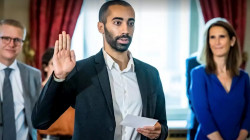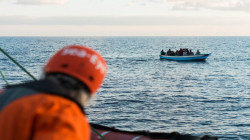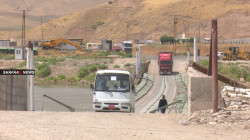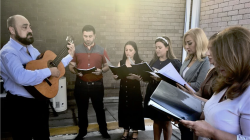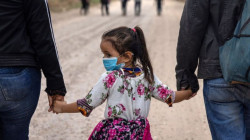As refugee policies evolve, Yazidis in Lincoln hope to be reunited with family members
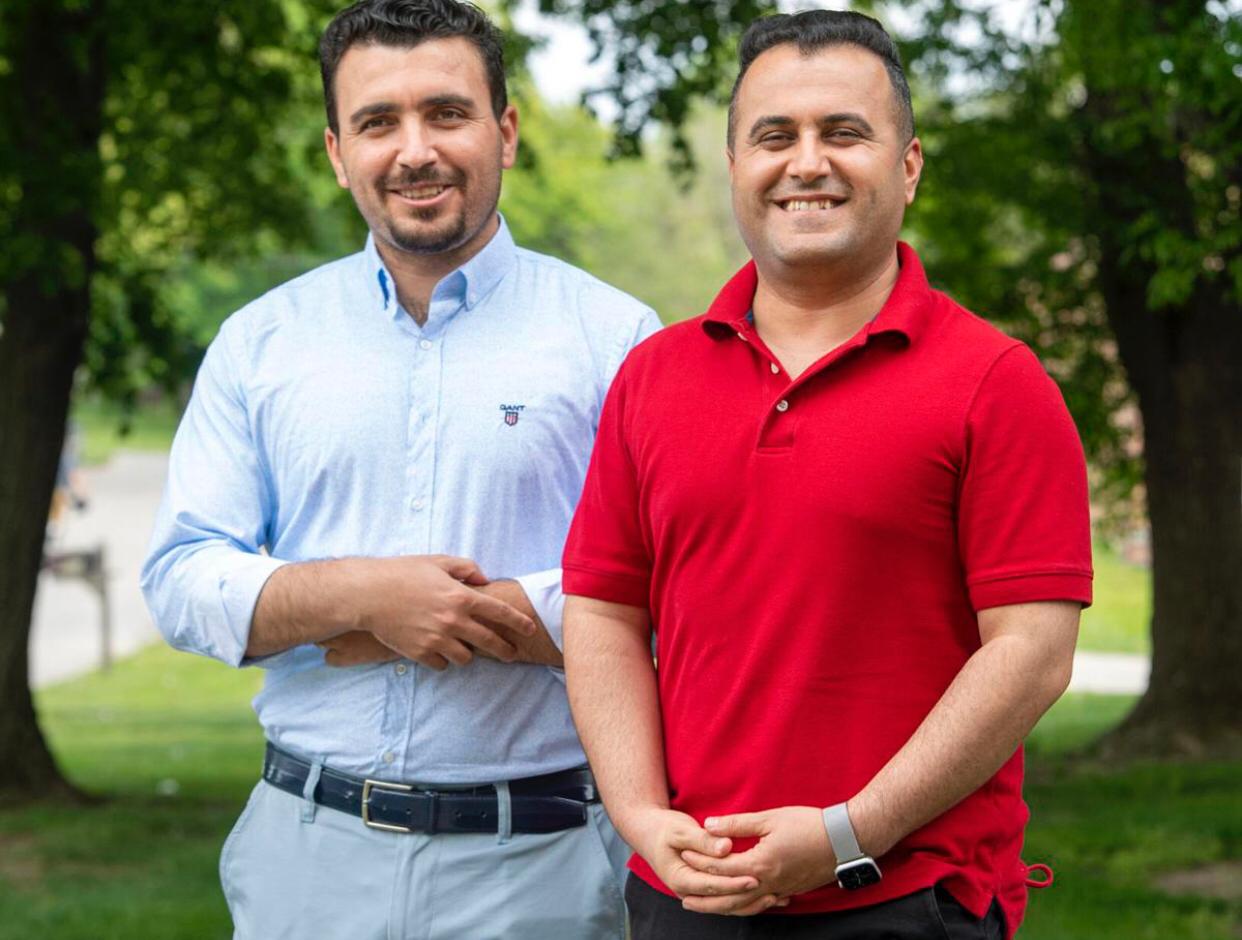
Shafaq News/ To Hazim Rashawka’s 3-year-old daughter, her father was just a picture.
Her neighbor in the northern Iraq refugee camp had a dad who they saw in person, but she only saw her father through video chats about two to three times a week.
In January, she broke down crying. Why is my dad just a picture?
Hazim saw his daughter in person when she was 6 months old, but didn't travel regularly to see his family out of fear that former President Donald Trump's immigration and refugee policies might trap him in Iraq.
He returned to Iraq earlier this year when President Joe Biden took office, believing it would be safe again to travel to visit his family.
Hazim immigrated to the U.S. in October 2016 on a Special Immigrant Visa, offered to individuals who have served in the U.S. military and their family members. One of Hazim’s brothers, Fayisal Rashoka, died in a 2008 suicide bombing while serving in the military, and another brother, Falah Rashoka, also served. Hazim and Falah, their three sisters and mother were granted the visas, known as SIVs.
But another brother, his family and Hazim’s wife and daughter did not receive permission to come to the U.S. before Trump’s orders banned, then delayed the visa process for people coming from Muslim-dominated countries.
Biden had initially promised to increase by seven times the number of refugees allowed to enter the country during the last year of Trump's presidency. In April, Biden said he'd keep Trump’s 15,000 refugee limit because of the COVID-19 pandemic, but the number was increased to 62,500 after he received criticism.
Hundreds of refugee or SIV families in Lincoln — which is home to the largest Yazidi community in the country — are still waiting for other family members to come to the U.S.
The religious group has faced centuries of persecution, and in 2014, the Islamic State committed a genocide of the Yazidis, leading thousands to seek shelter in the U.S.
But the process of immigrating to the U.S. takes time, and refugee applications are not always approved. If granted, local organizations, such as Catholic Social Services, Lutheran Family Services, Lincoln Literacy and Yazada, a global Yazidi organization with an office in Lincoln, help those individuals find a place to live, learn English and adapt to a new culture.
Family of fallen Yazidi interpreter finally finds hope, safety in Lincoln
The lottery
Megan Meagher, the refugee resettlement director at Catholic Social Services, said she does not fully understand how the U.S. chooses to approve certain applications out of a large pile. But regardless of who gets chosen, the limited number has resulted in separated families all over Lincoln.
“The main obstacle comes from both the increased and prolonged vetting process required for Muslim-dominated countries. We've seen additional backlogs precisely just because of the decrease in refugee admissions to our country,” she said. “It's quite common for someone who arrived in the U.S. to still have a number of their family members left behind.”
During fiscal year 2016, the U.S. accepted 9,880 Iraqi refugees — not including SIVs — according to the Refugee Processing Center. By 2020, that number was down to 537.
Along with that, the number of Yazidi refugees accepted went from 434 in fiscal year 2017 to just 20 in 2019, according to the Associated Press.
Though Trump’s policies restricted the number of refugees entering the country, the U.S. worked with minorities in Iraq and spent more than $400 million to rebuild the community, said Hadi Pir, vice president and co-founder of Yazada.
A Biden executive order in May said he hopes to take in 125,000 refugees during each year of his presidency after 2021.
“It's going to take time to rebuild the refugee resettlement pipeline,” Meagher said. “It's going to take time to make up and streamline what was already a very long backlog — an overwhelming backlog.”
In Iraq
Hazim’s daughter was slightly skeptical of him when he arrived in Iraq in late January, not fully understanding how he was part of the family.
The refugee settlement isn’t the ideal place for a reunion. Families live in tents side-by-side in an area comparable to the size of downtown Lincoln. For every 500 people, there’s only one water pump. People use a pot of water to bathe, dumping out the remains when they finish.
The pandemic made it difficult for the nonprofits that usually provide the refugee camps with food and hygiene products to do so.
“There is many things rather than COVID to (be concerned) about,” Hazim said.
But the family was together.
Hazim’s wife is a nurse, and he estimated she helps about seven or eight people — usually women — each day.
While visiting, he was able to celebrate his wife's birthday with her for the first time in years, and they dyed eggs together to celebrate the Yazidi New Year.
His daughter’s first words to him may have been “keep away from me,” but he was finally able to see her in person.
The family of three spent time traveling around the nearby area and Hazim began to develop a relationship with his daughter.
Around the third week, his daughter ran to his bed. She asked if he would leave them again. He said no because it was early in his 90-day trip.
Now back in Lincoln, the memory is bittersweet.
In Lincoln
Paintings of peacocks line the walls at Yazada, 300 N. 27th St., and a 3-D model of the Lalish temple sits in the corner. They serve as reminders of the Yazidi religion and culture.
Also hanging on the wall is a painted picture by children of the temple in commemoration of Aug. 3, 2014, the day of the Yazidi genocide. A poster created by a refugee shows pictures of her family, missing since the genocide.
In 2019, Yazada performed 794 services, including helping people pay bills or apply for jobs. By the end of 2020, that number had more than doubled to 1,917.
Brothers Falah and Hazim are building a life in the U.S. despite being separated from some of their close family members.
Hazim, who was a doctor when he lived in Iraq, is close to becoming a doctor in the U.S., and Falah is a student at the University of Nebraska-Lincoln who has published research papers related to how the community has adapted to the pandemic.
The brothers live in the same apartment complex as their mother. Cell service at the refugee camp is unreliable, but Falah said his mother tries to call family members once a day. She wanted to go back to Iraq during the pandemic, but her sons talked her out of it.
They had kept their distance from her and avoided going out in public until they were vaccinated. But on the Yazidi New Year in April, they chatted and dyed eggs, celebrating after a complicated year.
On May 14, though gloomy clouds hung in the sky, Falah was happy. The Centers for Disease Control and Prevention declared vaccinated individuals did not have to wear a mask in most circumstances, so he sat in his living room, smiling wide.
Outside the apartment, a red eggshell was taped above the doorframe. Eggshells represent hope, starting a new chapter of life.
The brothers and their mother look forward to that new chapter and being reunited with family.
“My mom, she’s (been) waiting for her other son to come to the U.S. for four years,” Falah said. “We served this country. We deserve to be here."
Source: Journal Star

